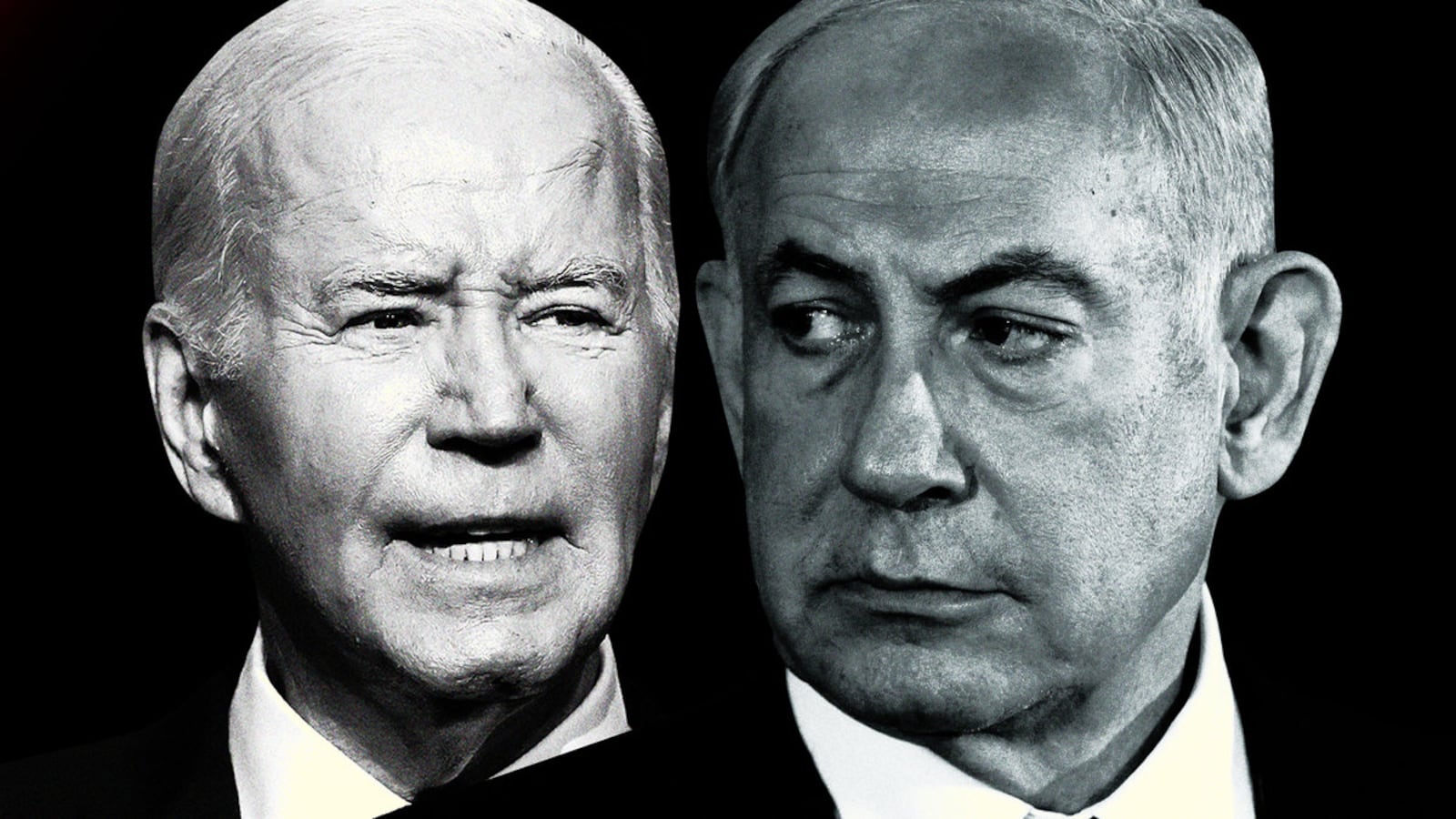Joe Biden’s statement that he would limit offensive weapons shipments to Israel if they expand their operations in Rafah is one of the most significant developments in the Gaza war since it started. Coming in the wake of the decision a week ago to withhold shipments of powerful bombs to Israel, it is clear that a significant shift has taken place in Biden Administration policy.
It is the right move.
Despite howling from the Israeli government and Republicans in the United States, these steps use U.S. influence to not only advance our own interests in the region but also to help guide Israel toward policies that are in its best interests. The convicted extremist in Netanyahu’s cabinet, national security minister Itamar Ben-Gvir, tweeted: “Hamas ❤️Biden.”
Contrary to some of his critics, Biden’s act is not unprecedented. Obama withheld some arms shipments to Israel. The U.S. has limited what arms it supplies to Ukraine and has even set guidelines (too stringent in my view) for how they use those arms. Further, U.S. National Security Council spokesperson John Kirby on Thursday reiterated that other U.S. arms shipments to Israel are currently continuing.
While I and others have called for Biden to use this kind of influence on the Israelis for some time now, the administration’s delay in reaching this point makes arguments like Ben Gvir’s appear as ridiculous as they are.
No American president in U.S. history has ever demonstrated more committed support for Israel and endured more criticism for it than has Biden. (And furthermore, of course, it was Netanyahu with the express approval of Biden’s predecessor, Donald Trump, who approved sending the funding that propped up and strengthened Hamas in the years leading up to the October 7th attack.)
Instead of bemoaning Biden’s announcement—for which he had carefully laid the groundwork over the past months and weeks—the government of Israel needs to hear what it really means. While Netanyahu and his surrogates argue that the by threatening to withhold aid to Israel Biden is undercutting the country’s leverage with Hamas, the reality is that by making this move Biden is making it clear that the U.S. feels it is now as important to use leverage to push Israel to a ceasefire as it has been to weaken Hamas, bring it to the negotiating table, and persuade it to release the hostages in its custody.
This action indicates the U.S. feels we are at a point in the negotiation at which Israel’s threat of a major action in Rafah will not help to deliver a hostage deal and a ceasefire and that the risks of such an operation, particularly to innocent civilians, far outweigh the benefits. With these recent actions, the U.S. administration appears to be saying to Netanyahu, enough, let’s make a deal, let’s get as many hostages back as we can, let’s have a ceasefire and work on what comes next.

A wounded Palestinian sits on debris at the site of an Israeli strike on a house, amid the ongoing conflict between Israel and the Palestinian Islamist group Hamas, in Rafah, in the southern Gaza Strip May 9, 2024.
Hatem Khaled/ReutersThat’s hard for Bibi & Co. to accept, both because of their extremist views but also because the pause of the ceasefire will bring with it real political peril for Netanyahu. It will allow Israel to begin to ask what policy failures made October 7th possible. Working with Trump to prop up Hamas was just one such failure…albeit certainly one of the biggest, most catastrophic policy failures in Israeli history. Pulling troops away from Israel’s southern border was another. Ignoring warnings of a potential Hamas attack was certainly another.
Further, of course, the greatest peril faced by Netanyahu is much like that faced by his political brother from another mother, Donald Trump. It is the long arm of the law. Like Trump, Netanyahu wants to be in power in order to deflect, block, and delay being held accountable for past alleged crimes. A ceasefire and the possibility of a stepping back from the emergency mentality that has gripped Israel since October raises dramatically the possibility that Netanyahu will lose his position and the protections it affords him.
There is no guarantee he will be forced out of office, but with at least a pause in the war—and the chance to focus on the disastrous ways he left Israel in peril and then undermined its standing in the world while failing to achieve any of his stated goals during the war in Gaza—the prospects for the Israeli Prime Minister definitely do not look good.
Netanyahu responded to the Biden comments in which he said Israel has gone it alone in the past and would go it alone if needs be now. But he knows that absent the unqualified support of the U.S., Israel’s position in the world is much weaker. The leverage is real.
Acknowledging that must create pangs of sorrow for those who have lamented the huge losses in Gaza and who feel a quicker U.S. decision to use its leverage to pressure Israel to stop might have helped limit Palestinian suffering. That’s fair.
But those pangs should not stop proponents of peace in Gaza, of a respite and aid for its people, and for a new course for Israel from embracing and supporting the new position of the President and the U.S. government. We now must now watch to see whether the shift in the U.S. position has the desired effect, and whether the elusive ceasefire deal can finally be hammered out.
Sadly, of course, that is far from a sure thing. While America’s influence is real with the Israelis, it has its limits. What is more, not only does Netanyahu have personal interests he appears willing to put before those of his country, but he and his cabinet have repeatedly demonstrated a capability of translating bad judgment into bad actions and near complete immunity to taking good advice. Their track record leading up to Oct. 7 was awful, and ever since it has been worse.
So, for now, it would be a mistake to be too hopeful for an immediate breakthrough. Rather, we must be thankful that the one leader who has repeatedly acted in the interests of both Israel and the United States, Joe Biden, has done so again. And we must hope that behind their public posturing, Israel’s leaders at the very least recognize that crossing Biden’s red line would not only cut off arms supplies that their current yelps of discomfort suggest they need, but that it would do profound and lasting damage to their most important international relationship—compounding that that’s already been done as a consequence of the brutality of their war in Gaza.
The calculus of this war has changed. Hopefully that will move us closer to peace. But in any event it will mean the U.S. will no longer be supporting the worst of Israel’s abuses in Gaza.







